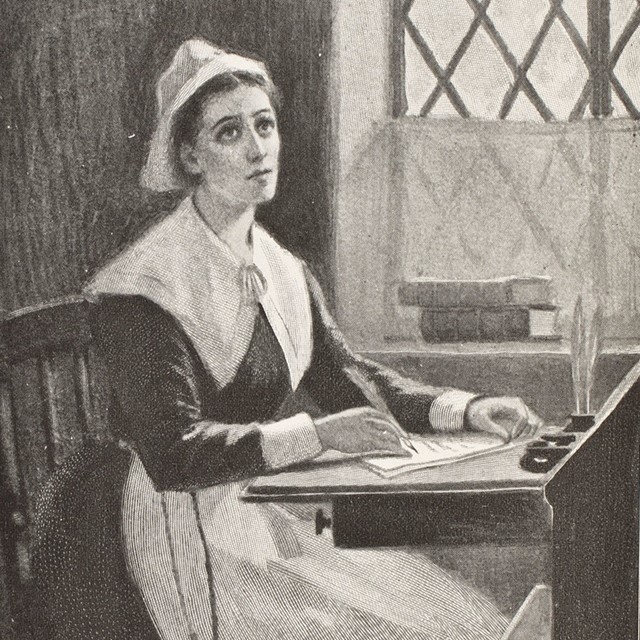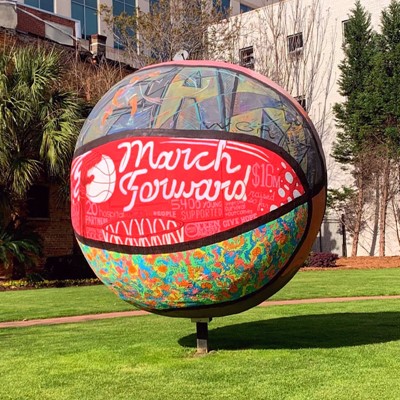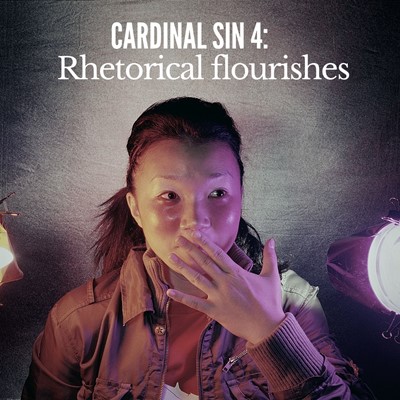
The Buckley School's founder believed all public speakers should hone their presentation skills by reading poetry out loud. We keep that worthwhile practice alive by including a poem in our magazine each month for you to read aloud. Above, an artist imagines what Anne Bradstreet might have looked like, in an illustration for a collection of her poems.
"For such despite they cast on female wits: If what I do prove well, it won't advance, They'll say it's stol'n, or else it was by chance."
– Anne Bradstreet on the unfair treatment of women, from her poem "Prologue"
Could a Puritan wife and mother be an outspoken poet? Anne Bradstreet found ways to push the limits of her times, expressing her belief that women were men's equals in poem after poem.
Born in England in 1612, Anne Dudley became a well-educated woman for her times, thanks in part to her family's social standing. At age 16, she was married to Simon Bradstreet and soon after, migrated to the Puritan colony that is now Salem, Massachusetts. Later she and her family moved to Boston, where her father and husband were key to the founding of Harvard University.
Anne Bradstreet seems to have written poetry in defiance of both the times and her circumstances. While Puritans believed women were lesser than men, Bradstreet makes it clear in her poems she disagrees. Her very act of writing poetry required boldness and determination. She was mother to eight children, wife and daughter to two men whose public lives surely created additional burdens for her.
As her work was published, prominent men did criticize her choice to write. Undeterred, Bradstreet continued to write a significant number of poems and is known for being the first writer in England’s North American colonies to be published, as well as the first Puritan writer in North American literature.
Below, find lines from Bradstreet that will sound familiar to you, even if you are unfamiliar with the poet. Some historians believe the sentiments expressed in this poem helped to make Bradstreet's opinions and writing more acceptable to the critical audiences of her era.
To My Dear and Loving Husband
by ANNE BRADSTREET
If ever two were one, then surely we.
If ever man were loved by wife, then thee.
If ever wife was happy in a man,
Compare with me, ye women, if you can.
I prize thy love more than whole mines of gold,
Or all the riches that the East doth hold.
My love is such that rivers cannot quench,
Nor ought but love from thee give recompense.
Thy love is such I can no way repay;
The heavens reward thee manifold, I pray.
Then while we live, in love let's so persever,
That when we live no more, we may live ever.






